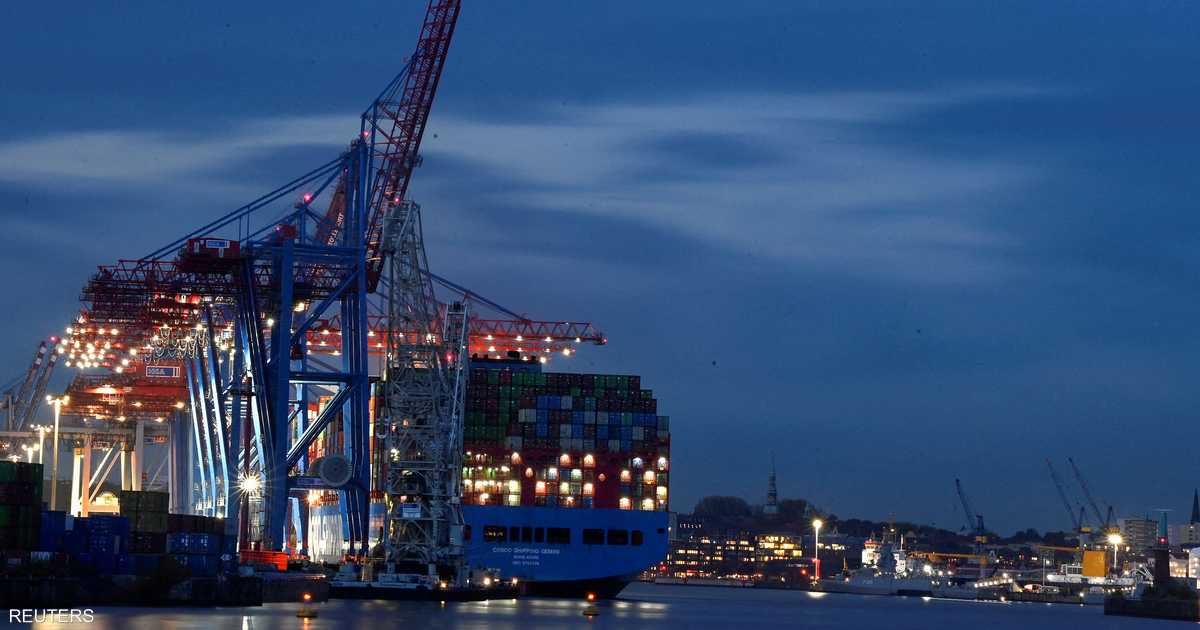
Economy of Germany – Port of Hamburg
The country’s economy shrank slightly in the first quarter of 2023 compared with the previous three months, entering recession, data from the German statistics office showed on Thursday.
The data showed gross domestic product fell 0.3 percent on a quarterly basis when adjusted for price and calendar effects.
The German economy shrank 0.5 percent in the fourth quarter of 2022 from the last quarter of last year.
A technical recession is usually defined as two consecutive quarterly contractions.
Gross domestic product stagnated in the first quarter and Germany has not avoided recession, a preliminary estimate showed.
Economists polled by Reuters had expected the German economy to contract 0.1 percent on a quarterly basis.
The data showed gross domestic product fell 0.2 percent year-on-year in the first quarter, beating expectations for 0.2 percent growth.
Inflation was a drag on the German economy at the start of the year, the statistics office said. This was reflected in household consumption, which fell 1.2 percent on a quarterly basis after adjusting for price and calendar effects.
Contrary to that trend, investment picked up in the first three months of the year after weakening in the second half of 2022. Trade also made a positive contribution.
The Statistics Office publishes a detailed report showing that data.
ING Bank’s head of macros, Karsten Breschi, said: “The slowdown was slower than some early forecasts made at the start of the crisis, but mild winter weather and the Covid pandemic eased supply chain problems. ” is not enough to pull the economy out of the region.
Meanwhile, Jens Oliver Niklash, banking analyst at LBBW Bank, notes, “The negative revision in growth figures after weak economic indicators is not surprising.”
There are early indications that things will be similarly weak in the second quarter of 2023, Niklaus said.
The latest slowdown in Germany came as the coronavirus pandemic spread across Europe in early 2020, prompting governments to effectively shut down large sectors of the economy.
Business confidence is falling in Germany
Business confidence in Germany fell for the first time after six months of gains, a survey showed, as inflation eased slowly and interest rates continued to rise in Europe’s biggest economy.
The agency said its monthly index fell to 91.7 points in May from 93.4 points last month (info).
Business confidence in Germany fell for the first time after six months of gains, as inflation in Europe’s largest economy eased slowly and interest rates continued to rise, a survey by the Info Institute showed.
Managers’ expectations for the next six months were significantly lower, while their assessment of the current situation was slightly worse than in April.
There has been a sharp decline in confidence in the manufacturing sector, the report said, with expectations to see their biggest increase since March 2022, a month after Russia launched its war in Ukraine.
Germany’s annual inflation rate was 7.2 percent in April, up from 7.4 percent in March.
The European Central Bank has repeatedly raised interest rates as part of efforts to fight inflation across the eurozone.
“The underlying cause of the current deterioration in the business environment is flat core inflation and further tightening of monetary policy by the European Central Bank,” Timo Klein, an economist at Frankfurt-based S&P Global Market Intelligence, wrote in a research note. .

“Creator. Award-winning problem solver. Music evangelist. Incurable introvert.”







